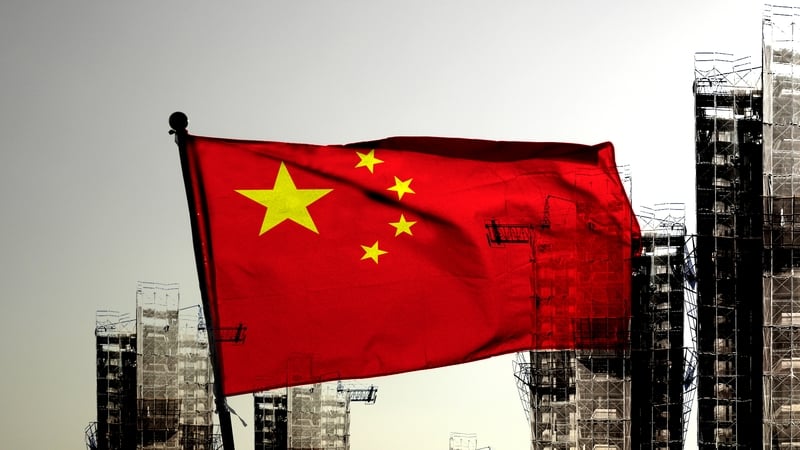China has exempted some US imports from its 125% tariffs and is asking firms to identify critical goods they need levy-free, according to businesses that have been notified, in the clearest sign yet of Beijing’s concerns about the trade war’s fallout.
The dispensation, which follows de-escalatory statements from the US, signals that the world’s two largest economies were prepared to rein in their conflict, which had frozen much of the trade between them, raising fears of a global recession.
China’s exemptions – which business groups hope would extend to dozens of industries – pushed the US dollar up slightly and lifted equity markets in Hong Kong and Japan.
“As a quid-pro-quo move, it could provide a potential way to de-escalate tensions,” said Alfredo Montufar-Helu, a senior adviser to the Conference Board’s China Centre, a think tank.
But, he cautioned: “It’s clear that neither the US nor China want to be the first in reaching out for a deal.”
China has not yet communicated publicly on any exemptions.
US President Donald Trump told TIME magazine in an interview that US-China talks were taking place on tariffs, and that Chinese President Xi Jinping had called him. China has so far disputed the US characterisation of talks.
“He’s called. And I don’t think that’s a sign of weakness on his behalf,” Mr Trump told TIME. He did not say when Mr Xi called or what the two leaders discussed.
Equity markets largely shrugged off the interview. European shares remained in positive territory, while US stock futures failed to hold onto early gains and were last little changed on the day.
A statement by the Politburo, the Communist Party’s elite decision-making body, focused on efforts to maintain stability at home by supporting firms and workers most affected by tariffs.
The readout, which followed the Politburo’s regular monthly meeting, showed that Beijing was also ready to hunker down and fight a trade war of attrition if needed to outlast the US in enduring trade war pain.
A Ministry of Commerce taskforce is collecting lists of items that could be exempted from tariffs and is asking companies to submit their own requests, according to a person with knowledge of that outreach.
The ministry said yesterday it had held a meeting with more than 80 foreign companies and business chambers in China to discuss the impact of US tariffs on investment and the operation of foreign firms.
“The Chinese government, for example, has been asking our companies what sort of things are you importing to China from the US that you cannot find anywhere else and so would shut down your supply chain,” American Chamber of Commerce in China President Michael Hart said.
Hart added some member pharmaceutical companies had reported being able to import drugs to China without tariffs. He believed the exemptions were drug-specific, not industry-wide.
The chief executive of French aircraft engine maker Safran SAF.PA said it had been informed last night that China had granted tariff exemptions on “a certain number of aerospace equipment parts” including engines and landing gear.
The tariff exemptions under consideration by Beijing could provide cost relief for companies in China and take pressure off US exports at a time when the Trump administration has shown signs of wanting to make a deal with Beijing.
The European Union Chamber of Commerce in China also said it had raised the issue of tariff exemptions with the commerce ministry and was awaiting a response.
“Many of our member companies are significantly impacted by the tariffs on critical components imported from the US,” President Jens Eskelund said.
A list of 131 categories of products said to be under consideration for tariff exemptions was circulating on Chinese social media platforms and among some businesses and trade groups.
Huatai Securities said the list corresponded to $45 billion worth of imports to China last year.
While the US has said the trade stand-off with China is economically untenable and already offered tariff exemptions to some electronic goods, China has repeatedly said it is willing to fight to the end unless the US lifts its 145% tariffs.
But China’s economy headed into the trade war with rising unemployment, deflationary pressures and heightened concern that a mounting backlog of unsold exports could drive domestic prices even lower.
While China ran a trillion-dollar trade surplus in 2024, it also relies on the United States for key imports, including the petrochemical ethane needed to make plastics, and some drugs.
Big pharmaceutical companies including AstraZeneca AZN.L and GSK GSK.L have at least one manufacturing site in the U.S. for drugs sold in China, according to Chinese government data.
Major ethane processors have already sought tariff waivers from Beijing because the US is the only supplier.




